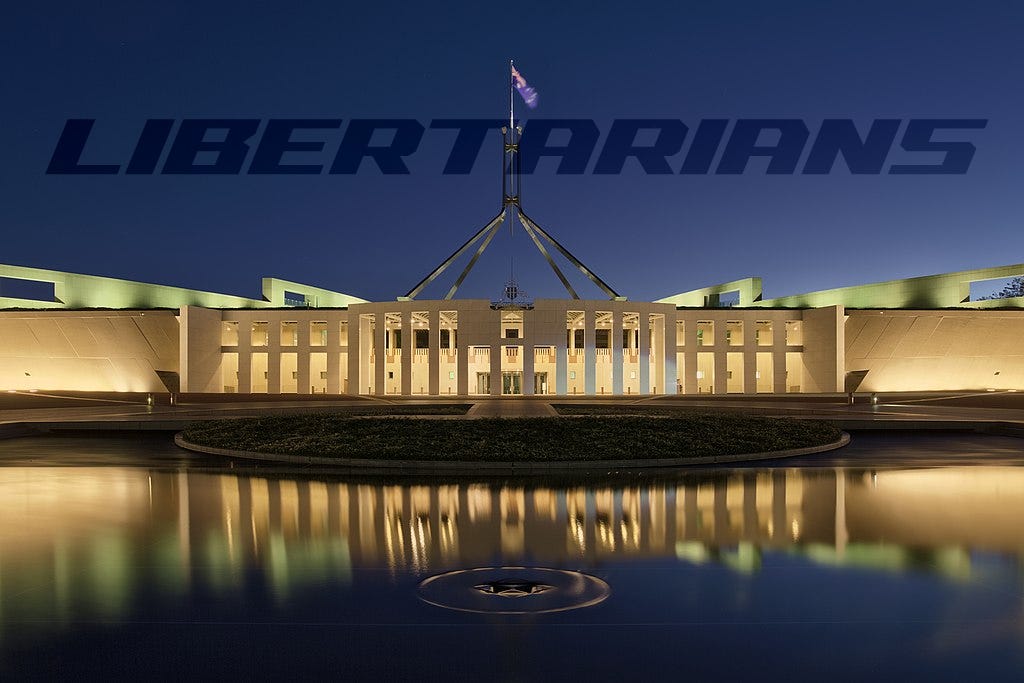Libertarians, Empathy, and the Path to Real Reform
If you’re a libertarian in Australia, you’re used to being the odd one out at the barbecue. We’re the 1%, literally. Across much of the country, libertarian candidates scraped together about one in every hundred votes. It’s a sobering figure, especially for those of us who believe that individual liberty and limited government are not just abstract ideals, but the only way out of the economic and social malaise gripping the country.
So why does our message struggle to land? It’s not because Australians love government for its own sake. It’s because for millions, government is the pay packet, the safety net, or the only thing standing between them and the abyss. If we want to move beyond the fringe, libertarians must learn to communicate with empathy, not just conviction.
Let’s be honest - promising to slash government spending is political suicide in Australia. The numbers don’t lie - about one in six Australians is employed by government at some level, and millions more depend on welfare, the NDIS or public health. When libertarians talk about ‘massive cuts’, it’s heard not as a promise of freedom but as a threat to livelihoods, families, and communities. It’s no wonder voters tune out.
Too often, libertarian rhetoric comes across as cold and technocratic: spreadsheets over stories, numbers over neighbours. We talk about ‘market efficiency’ and ‘fiscal responsibility’ while ignoring the lived reality of people who, through no fault of their own, rely on the state to get by. If we don’t acknowledge this, we’ll never be trusted with the scalpel, let alone the chainsaw.
Acknowledging the fears of those who depend on government, and offering real, phased solutions - not overnight shocks.
Empathy isn’t weakness; it is the starting point for persuasion. The path to a freer Australia runs through the hearts and homes of the people who fear change the most. That means recognising that for many, government isn’t just bureaucracy - it’s the school aide who helps their disabled child, the nurse at the local hospital or the Centrelink payment that keeps the fridge stocked.
Libertarians need to make it clear: we’re not out to punish the vulnerable or throw anyone under the bus. Our critique is of a system that traps people in dependency, stifles innovation, and makes even the most basic services unaffordable. The goal isn’t to rip the rug out from under anyone, but to build a society where fewer people need the rug in the first place.
So how do we talk about reducing the size of government without sounding like the villain in a Dickens novel? By shifting the conversation from cuts to growth.
Every dollar government spends is a dollar taken from someone’s pay packet or borrowed from future generations. The real cost isn’t just the tax bill - it’s the businesses that never open, the jobs that are never created, the medical breakthroughs that never happen because resources are locked up in bureaucracy. When government shrinks, the private sector grows. That’s not a theory; it’s the story of every country that ever embraced genuine reform.
But growth isn’t just an abstract promise. It means more jobs, higher wages, and a safety net that’s sustainable. When the economy is unleashed, opportunities multiply. The pain of transition is real, but so is the payoff: a society where prosperity is the norm, not the exception.
If libertarians want to move beyond 1%, we need to tell a better story. Not one of deprivation, but of possibility. Not ‘what we’ll take away’, but ‘what we’ll make possible.’ We need to show how a leaner, less intrusive government can deliver better outcomes for everyone - especially the most vulnerable.
The numbers don’t lie - about one in six Australians is employed by government at some level
That means:
Acknowledging the fears of those who depend on government, and offering real, phased solutions - not overnight shocks.
Highlighting success stories where deregulation and competition have improved lives, from cheaper airfares to better telecommunications.
Making the case that true security comes from a dynamic economy, not a bloated bureaucracy.
Changing the culture won’t happen overnight. As I’ve written before, real reform starts in conversations at work, at church and at the footy club - not in Canberra. It’s about making the case for liberty with humility and patience, recognising that every Australian wants security, dignity and hope for the future.
We’re not the philosophy of ‘no.’ We’re the philosophy of ‘what if?’ What if government trusted you with more of your own money? What if innovation wasn’t strangled by red tape? What if the safety net was strong enough for those who need it, but fewer people needed to fall into it at all?
That’s the message that can move us from 1% to a real force for change. Not by shouting louder, but by listening better and by showing that a freer Australia is a fairer, more prosperous one for all.





A pro-active article, Scott, amidst a flurry of pieces circulating right now that just point out the bleeding obvious of what our problems are. We all know what the problems are; we need a lot more solutions put up. As you say, point out the “how” with specific examples. We absolutely must shift that conversation and fast.
Great points and a thought-provoking question. It's a tough conversation to have when most of your conversation partners are receiving some form of "largesse" from the government and you're the odd one out.
"I just want to keep more of what I earn, so that I can help those around me" gets laughed at.
"But the government does that for you." and it goes from there (because telling them you don't trust the Government is always amusing).
I'm going to start thinking about phrasing things in terms of growth and not cuts - see how that goes.